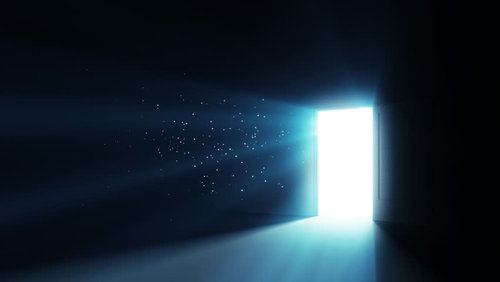Awakenings
“Awakening, basically, is a reversal of this: the patient ceases to feel the presence of illness and the absence of the world, and comes to feel the absence of his illness and the full presence of the world.”
― Oliver Sacks, Awakenings
“Awakening, basically, is a reversal of this: the patient ceases to feel the presence of illness and the absence of the world, and comes to feel the absence of his illness and the full presence of the world.”
― Oliver Sacks, Awakenings
Perhaps you have seen the movie “Awakenings” (1990), or the book by Jonathan Sacks? Sacks described his work with hospitalized patients seemingly frozen in stasis for decades, caused by some kind of viral infection, unable to communicate with the outside world. He discovered that the experimental drug L-DOPA, used which seemed to bring them back to life. Suddenly they could come alive and communicate with the world again.
There’s a similar kind of “Awakening” which has been caused by the Coronavirus pandemic and those on the margins of the Church. Those who are disabled, housebound, unable to be physically present, have now been able to engage again with the Church congregation with Zoom services, participating in a way they had given up as lost for good.
Frances Ryan noted that:
“While the coronavirus pandemic has led to unprecedented restrictions for billions of people, for many with disabilities, the lockdown has paradoxically opened up the world. As society embraces “virtual” living, disabled people – who for years have missed out due to poor access – are suddenly finding themselves able to take part in work, culture, or socialising from their own home.”
Listening to “All Things Considered”, the BBC Radio Wales religious affairs programme, I was struck by the testimony of writer and theologian Tanya Marlow, who has been housebound for 10 years with severe M.E., and who has only been able to manage going outside every two weeks in a wheelchair. She said this:
“Imagine that society is this great, walled city which disabled and chronically ill people are shut out of. We’ve had to make our own temporary lodgings outside. Now, the people who’ve said, repeatedly, ‘No we can’t bring our services into your tent’ have now flooded our tent.”
The website Becca is Learning (https://beccaislearning.com/) describes what it can be like to be limited by disability:
“When I got ill in 2013 my world completely shrunk. It contracted down to my small bedroom and life in the brief moments of consciousness where the brain fog and pain receded enough for me to come up for air: have a small conversation, take a shower, watch an episode of something.”
And she had this to say thinking on “Beauty for Brokenness”
“Another beauty I see in amongst it all, available to those who are wise enough and able slow down enough to hear it whisper in our anxious ears, are the composed and courageous prophetic voices of those who have already been battling imposed incarceration long before it became a mainstream experience: the elderly, the poor, the ill, the imprisoned, the grief-stricken. I think of Tanya Marlow’s beautiful tweet where she celebrated being able to worship at church together with her family this Easter. These people who in ‘normal life’ are outside on the margins, but as it turns out, might have been stockpiling grace and wisdom for our communities for times such as these, and yet are even more vulnerable in light of the pandemic.”
Tanya Marlow described what it was like to be excluded from communal worship.
“Although my church loved me well, because of my disability I had become excluded from communal worship. As the years went by, I wondered if God had rejected me, too. I had to learn to survive in a spiritual desert. The Temple is not the only model of church. Even when we feel like we’ve been expelled from the people of God, we are not alone, we are not forsaken. God always shows up in the exile and desert – and we find God’s people with us, too.”
“What of the ‘temple’ churches who serve healthy families but unintentionally exclude elderly, troubled or disabled people? They are still church, but perhaps we need to remember they are not all of church, nor enough church.”
“My disability has taught me that, at the most basic level, church is as messy and simple as the New Testament scattered church who met in homes, had a meal, and told stories of Jesus. We can gather, host, and encourage one another in a variety of ways. And this is good news.”
In “Awakenings”, the effect of the treatment was only temporary, and gradually, the patients became rigid, stiff, and back in a state of paralysis, locked back and isolated within themselves.
The pandemic has opened a door which was shut, excluding those on the margins, who can now enter the worshiping community again, and can participate in virtual services in a way they never could before. As churches start the slow process of re-opening, will it be a reversion to business as usual, with the door shut again, closing off those on the margins, leaving them outside? Or will lessons have been learnt about how the horizons of a church can expand to encompass both?
See, I have placed before you an open door that no one can shut.
I know that you have little strength,
Yet you have kept my word and have not denied my name





































No comments:
Post a Comment